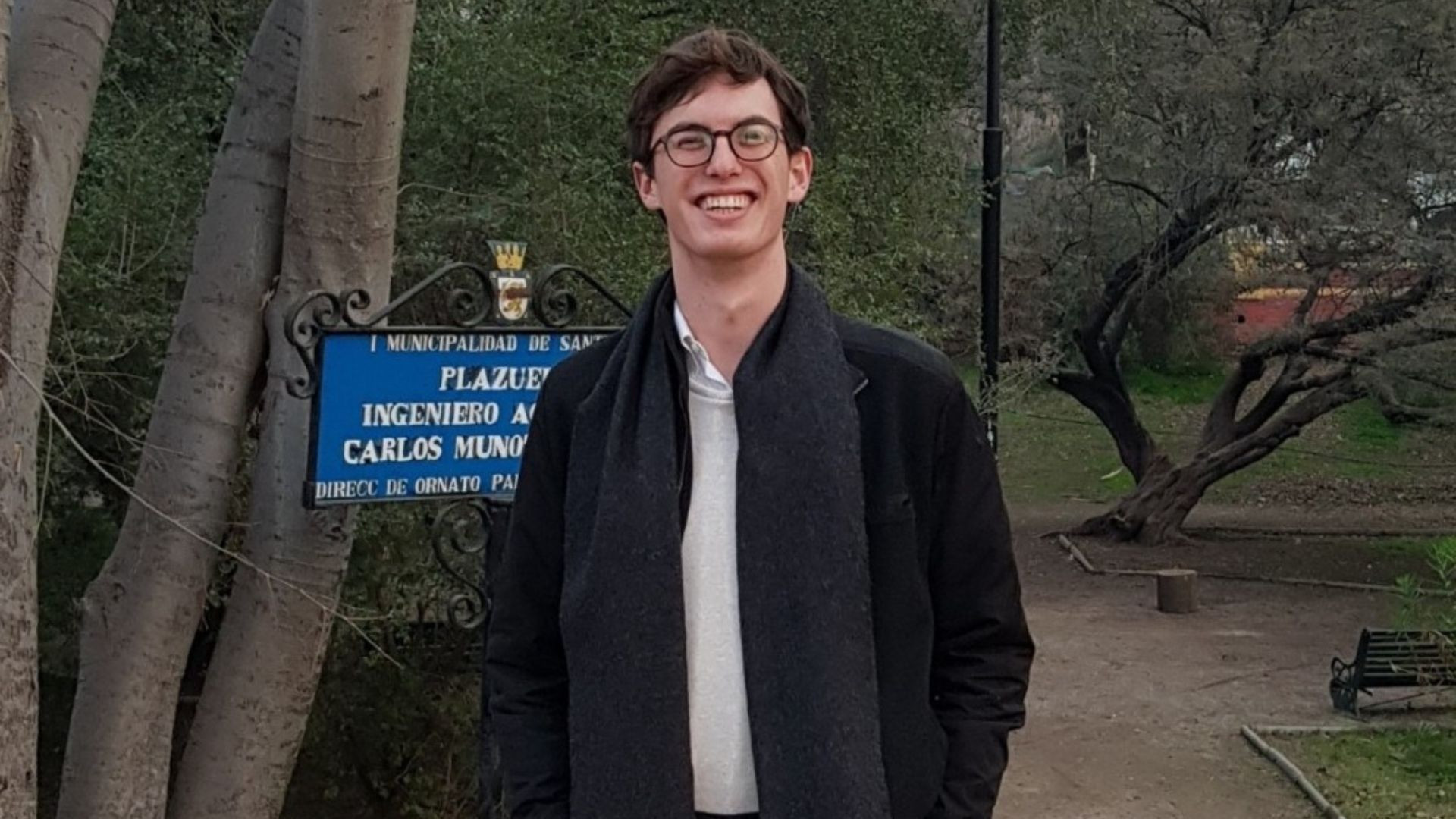Santiago Internship Story: Assembling the Largest Collection of Chilean Poetry

Diego Plaza, an undergraduate student at Columbia University studying English and Ecology, Evolution, and Environmental Biology, spent his summer working in the Global Virtual Internship Program, organized by the Santiago Center, with Professor Ricardo Martínez of Universidad Diego Portales’ School of Communication and Letters on a project related to computational literary analysis of Chilean poetry. This is Plaza’s account of his internship.
I was initially interested in the role because I wanted to increase my familiarity with Chilean writers and poets, given my own cultural background as a Chilean born abroad and raised largely away from home. Getting the chance to not only learn more about Chilean literature broadly but also about lesser-known poets has been a great privilege.
The project overall is aiming to assemble the largest collection of poetry published in Chile, data which would then be used to train software designed specifically to aid future researchers in analyzing Chilean poetry. Basic forms of this software have been operational for a few years and have already seen some success, but the model requires a significantly greater amount of data to train on before it can start being confidently and routinely used as a tool for literary analysis. My involvement in the project largely revolved around collecting this data: I would search through [the Columbia Libraries Catalog] CLIO for any sign of Chilean poets who might not yet be represented in the dataset and then sought out any poems that ought to be included in the database. When CLIO lacked an online option, I went to the library and searched for poems in their physical form, cross-referencing with the master spreadsheet to make sure I avoided redundancies. Later in the internship, I began collecting book titles, author names, and storage locations of various texts associated with Chilean authors in the Columbia University library system. I intended to create a spreadsheet to help identify which databases or libraries the team should most seek access to.
Many books were held off-site in Princeton or Harvard, but the vast majority of the relevant texts were actually hosted digitally on a third-party database, which Universidad Diego Portales had not previously sought access to. My hopes were to help others in later iterations of my role to identify which databases and libraries ought to be the center of focus for the project at large and to make the work of future researchers easier in general by providing a list of books to seek out.
From this experience, I believe that my research and organizational skills broadly improved, but I also had the opportunity to enhance my skills specifically related to working with vast databases. Further, this was among my first chances to really work one-on-one with a professor in a research capacity, so I learned a lot about how these sorts of large-scale and long-term projects operate and are organized. Most importantly, however, I have gained an even greater appreciation for and interest in comparative literature as my meetings with Professor Martínez often involved discussions on what makes Chilean literature different from the literature of other Spanish-speaking countries and what makes Spanish-language literature different from work done in English, down to the level of the phonetics and cultural background of each language.
This internship came at a time in my academic career of much change. I have, for the last three years, largely been STEM focused in my background but took on this internship as part of my pivot towards the study of English and literature. In the future, I think I will look fondly back onto this experience as the first steps I took towards this new stage in my life. My interest for further research into comparative literature has grown significantly and I now find myself considering extending my studies deep into graduate school.
In brief, the tasks completed/things learned can be listed like so:
1) Searched Columbia’s databases for Chilean poets not represented in the dataset
2) Collected poems for the database from digital sources
3) Physically searched the library network for poems when digital sources did not exist
4) Discovered new books and authors of interest for future research
5) Reviewed older, similar research on computational literary analysis conducted in Spain
6) Read and discussed about the history of Chilean poetry
7) Studied the way a language is composed affects a literature (e.g. how meter affects prose in English vs Spanish, what effect an abundance of polysyllabic words in a language has on poetry)
8) Learned about the difficulties in naming poetic movements/groups (making particular reference to Poesía Chilena Joven through previous work published by Ricardo Martínez)